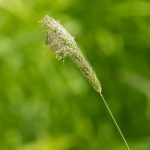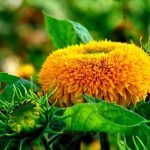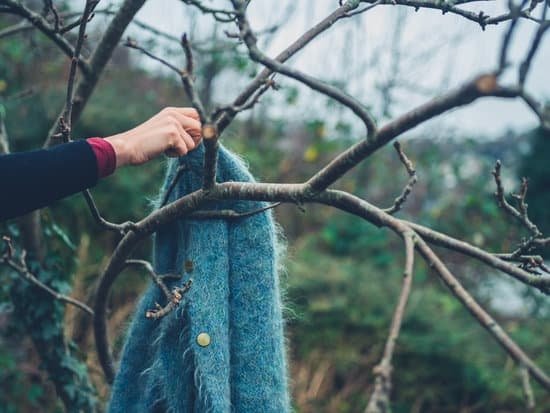Are you interested in starting a home garden but not sure where to begin? Whether you have a spacious backyard or just a small balcony, there are plenty of simple home gardening ideas that anyone can try. From choosing the right plants to mastering basic techniques, creating a beautiful and thriving garden is within reach. In this article, we will explore the fundamentals of simple home gardening and provide tips for beginners to get started.
When it comes to simple home gardening ideas, the key is to start with the basics. You don’t need a green thumb or extensive knowledge of horticulture to cultivate a successful garden.
With the right guidance and a little bit of patience, you can create a vibrant outdoor space or a lush indoor oasis. In this section, we will discuss how to choose the right plants for your garden, essential tools and supplies for beginner gardeners, basic gardening techniques for successful growth, container gardening for small spaces, creating a low-maintenance garden, and tips for watering and fertilizing your plants.
Whether you’re looking to grow your own fruits and vegetables or simply want to add some greenery to your living space, simple home gardening can be a rewarding and enjoyable hobby. By following our expert advice and practical tips, you’ll be well on your way to establishing a thriving garden that brings beauty and tranquility to your home. So roll up your sleeves, grab your gardening gloves, and let’s dive into the world of simple home gardening.
Choosing the Right Plants for Your Garden
When it comes to creating a successful home garden, choosing the right plants is essential. Whether you have a large outdoor space or are limited to a small balcony or indoor area, selecting the appropriate plants for your environment will set you up for gardening success. Consider factors such as climate, sunlight exposure, and available space when deciding which plants to cultivate.
Consider Your Climate and Sunlight
Before heading to the nursery, take some time to research the climate in your area and the specific sunlight conditions of your garden space. Certain plants thrive in hot, sunny climates, while others prefer cooler, shadier areas. By understanding these requirements, you can select plants that are well-suited to your particular environment and increase their chances of flourishing.
Choose Plants That Fit Your Space
If you have a small outdoor area or are limited to indoor gardening, opt for plants that are suitable for container gardening or can thrive indoors. Herbs like basil and mint, as well as compact varieties of vegetables like cherry tomatoes and lettuce, are excellent choices for small spaces. For indoor gardens, consider low-light tolerant plants such as pothos or snake plants.
By carefully considering your climate and available space when choosing your garden’s plantings, you can set yourself up for a successful and enjoyable gardening experience. With these simple home gardening ideas in mind, you’ll be on your way to cultivating a beautiful and bountiful garden in no time.
Essential Tools and Supplies for Beginner Gardeners
When starting a home garden, it is essential to have the right tools and supplies to ensure that your plants thrive. One of the most basic tools that every beginner gardener should have is a durable hand trowel. This tool is perfect for planting, transplanting, and weeding, making it an essential item for any aspiring gardener. Additionally, a pair of quality gardening gloves will protect your hands from dirt, chemicals, and sharp objects while working in the garden.
In addition to tools, having the right supplies is crucial for successful gardening. A watering can or hose with a spray attachment is necessary for providing your plants with the hydration they need to grow. It’s also important to have high-quality potting soil and fertilizer on hand to provide your plants with essential nutrients. Consider investing in a durable wheelbarrow or garden cart to transport heavy items such as soil and mulch around your garden easily.
An important supply that beginner gardeners often overlook is proper plant containers or pots. Ensure that you choose containers with drainage holes to prevent waterlogging and root rot. For those interested in container gardening for small spaces, there are various options available such as hanging baskets, window boxes, and vertical planters which can be used both indoors and outdoors.
By ensuring you have these essential tools and supplies on hand before you begin your gardening journey, you’ll be setting yourself up for success from the start. Remember that investing in high-quality items will save you time and frustration in the long run as you cultivate your green thumb through simple home gardening ideas.
Basic Gardening Techniques for Successful Growth
When starting a home garden, it’s crucial to understand some basic gardening techniques to ensure successful growth of your plants. First and foremost, it’s important to prepare the soil properly. This involves removing any weeds, loosening the soil, and adding organic matter such as compost to provide essential nutrients for your plants. Proper soil preparation sets the stage for healthy and thriving plants.
Another fundamental technique is proper watering. Depending on the type of plant you are growing, the frequency and amount of watering may vary. It’s important to water deeply, ensuring that the roots receive an adequate amount of moisture. Overwatering or underwatering can lead to stunted growth or even plant death. Learning about the specific water needs of your plants is essential for their successful growth.
Furthermore, understanding how to control pests and diseases is also vital for maintaining a healthy garden. Whether it’s through natural pesticides or organic methods, it’s important to be proactive in preventing pest infestations and diseases that can harm your plants. By staying informed on how to identify and address these issues, you can protect your garden from potential threats.
Lastly, regular maintenance such as pruning, weeding, and providing support for climbing plants are all basic gardening techniques that contribute to successful growth in your home garden.
| Basic Gardening Techniques | Information |
|---|---|
| Soil Preparation | Remove weeds, loosen soil, add organic matter |
| Proper Watering | Water deeply and understand plant-specific water needs |
| Pest and Disease Control | Implement natural pesticides or organic methods |
| Maintenance Tasks |
Container Gardening for Small Spaces
For individuals living in apartments or homes with limited outdoor space, container gardening is the perfect solution to still being able to enjoy the benefits of growing their own plants, fruits, and vegetables. Here are some simple home gardening ideas for small spaces:
- Choose the right containers: When it comes to container gardening, the type of container you use matters. Opt for lightweight containers that can be easily moved around and have sufficient drainage holes to prevent waterlogging.
- Select the appropriate plants: Not all plants are suitable for container gardening. Choose compact varieties or dwarf species that are well-suited for small spaces. Herbs, tomatoes, peppers, lettuce, and strawberries are great options for container gardening.
- Utilize vertical space: Take advantage of vertical space by incorporating hanging baskets or wall-mounted planters. This allows you to grow more plants without taking up valuable floor space.
Additionally, consider adding a trellis or stakes to support vining plants such as cucumbers or peas.
Outdoor gardeners usually benefit from a variety of nutrients found in traditional garden soil; skinny urban home growers rely on potting soils to pump their plant life full of what they need. Great planting soil should not clump when squeezed and a bit dry under your hands but immediately crumble at any touch.
In addition, place your containers in areas where they will receive adequate sunlight and ensure that you water them regularly as potted plants tend to dry out faster than those planted in the ground. With these simple home gardening ideas, even those with limited outdoor space can create a thriving and beautiful container garden.
Creating a Low-Maintenance Garden
Choose Low-Maintenance Plants
When aiming for a low-maintenance garden, it’s important to choose plants that require minimal attention and care. Opt for native plants that are well-suited to the local climate and soil type. These plants are naturally adapted to the conditions in your area, making them easier to grow and maintain. Additionally, look for varieties that are disease-resistant and have a long blooming period, reducing the need for frequent maintenance.
Implement Efficient Irrigation Systems
To minimize the time and effort spent on watering your garden, consider installing an efficient irrigation system. Drip irrigation, soaker hoses, or automatic sprinklers can deliver water directly to the plant roots, reducing water waste and the need for frequent watering. Mulching around plants can also help retain moisture in the soil, decreasing the frequency of irrigation.
Keep Garden Design Simple
Simplify your garden layout by minimizing the number of different plant species and using large groupings of the same plant. This not only creates a cohesive and visually appealing garden but also reduces the amount of time spent on maintenance tasks such as pruning, deadheading, and dividing plants. Choose low-maintenance ground covers or perennials that require less upkeep than annuals or high-maintenance flowering plants.
By implementing these simple home gardening ideas for creating a low-maintenance garden, you can enjoy a beautiful outdoor space without spending hours on upkeep. With careful plant selection, efficient irrigation systems, and a simplified design, you can create a thriving garden that requires minimal time and effort to maintain.
Tips for Watering and Fertilizing Your Plants
Watering and fertilizing are essential aspects of maintaining a healthy garden. Proper watering and fertilizing practices can ensure the successful growth of your plants and flowers, whether you have a small outdoor garden or an indoor garden. Here are some simple home gardening ideas for watering and fertilizing your plants:
- Watering: It is important to water your plants regularly, especially during hot and dry periods. Make sure to water the base of the plants to encourage deep root growth. Consider using a soaker hose or drip irrigation system to deliver water directly to the roots.
- Fertilizing: Choose a fertilizer that is suitable for the type of plants in your garden. Slow-release fertilizers are great for providing continuous nutrients over time, while liquid fertilizers can be applied more frequently for quick results. Be cautious not to over-fertilize, as this can harm your plants.
- Compost: Consider using compost as a natural fertilizer for your garden. Compost provides essential nutrients and improves soil structure, promoting healthy plant growth.
By following these simple home gardening ideas for watering and fertilizing, you can help ensure that your plants thrive and flourish in your garden, no matter the size or location.
Remember that different plants have different watering and fertilizing needs, so it’s essential to research the specific requirements of the plants in your garden. With proper care and attention, you can create a beautiful and thriving garden in no time.
Simple Home Gardening Ideas for Indoor Gardens
If you’re looking to bring the beauty of nature indoors, creating an indoor garden is a perfect solution. Whether you live in a small apartment or simply want to add some greenery to your living space, indoor gardening can be a rewarding and enjoyable hobby. Here are some simple home gardening ideas for indoor gardens that will help you get started.
First, consider the type of plants that thrive indoors. Look for low-maintenance options such as pothos, snake plants, or peace lilies that don’t require extensive sunlight or watering. You can also explore herbs like basil, mint, and parsley that can be grown on windowsills and used in cooking.
Next, think about where you’ll place your indoor garden. Choose spots with natural light such as near windows or under skylights. If natural light is limited in your home, you may need to invest in artificial grow lights to ensure your plants receive the necessary light for growth.
Finally, consider the containers for your indoor garden. Opt for pots or planters that have drainage holes to prevent waterlogging and root rot. Additionally, consider the size of your plants when choosing containers-make sure they have enough space for root growth.
By following these simple home gardening ideas for indoor gardens, you can create a lush and inviting space inside your home while enjoying the benefits of nurturing greenery all year round.
Conclusion
In conclusion, starting a home garden can be a rewarding and fulfilling experience. With the right plants, tools, and techniques, anyone can create their own beautiful outdoor or indoor garden space. Whether you have a large yard or just a small balcony, there are simple home gardening ideas that can work for your space and lifestyle.
By choosing the right plants for your garden based on your climate and sunlight conditions, you can set yourself up for success from the start. It’s also important to invest in essential tools and supplies to make your gardening experience easier and more enjoyable. Basic gardening techniques such as proper watering and fertilizing are crucial for the successful growth of your plants.
For those with limited outdoor space, container gardening can be a great option to still enjoy the benefits of growing plants at home. Additionally, creating a low-maintenance garden can help you save time and effort while still enjoying the beauty of nature. And for those who prefer indoor gardening, there are plenty of simple home gardening ideas that can transform any living space into a lush green oasis.
With these simple home gardening ideas in mind, anyone can get started with their own home garden and experience the joy of growing their own plants. Whether you’re new to gardening or an experienced enthusiast, there are always new things to learn and explore in the world of home gardening. So roll up your sleeves, get your hands dirty, and let your inner gardener bloom.
Frequently Asked Questions
What Should I Garden for Beginners?
Beginners should consider starting with easy-to-grow plants like herbs, tomatoes, and lettuce. These plants are low-maintenance and can be grown in small spaces or containers, making them perfect for those new to gardening.
How Do You Layout a Garden for Beginners?
When laying out a garden for beginners, it’s important to consider the amount of sunlight, water access, and space for each plant. Start by sketching out a plan and considering the needs of the plants you want to grow. Grouping plants with similar needs together can make maintenance easier.
What Is the Easiest Type of Garden?
The easiest type of garden for beginners is often a container garden or raised bed garden. These options require less bending and stooping, making them more accessible and manageable for those new to gardening. Additionally, container gardens allow for more control over soil quality and drainage.

Welcome to my gardening blog! I am passionate about plants and enjoy sharing my knowledge and experiences with others. In this blog, I will write about everything related to gardening, from tips on how to get started to updates on my own garden projects.





